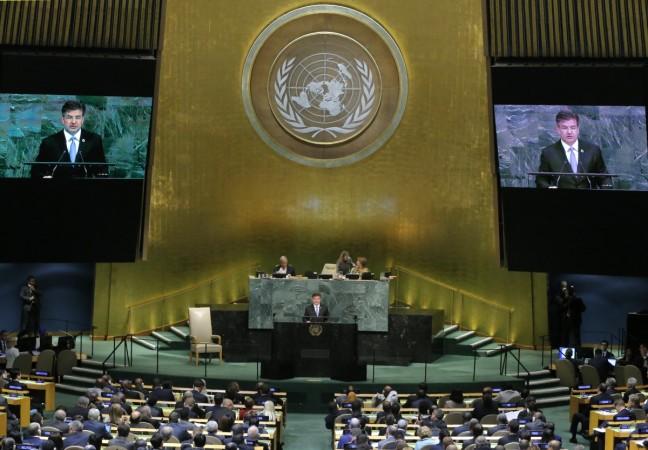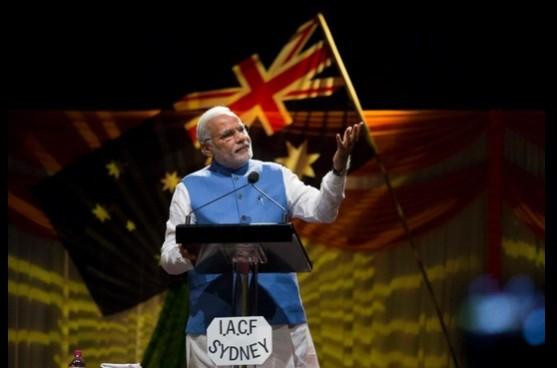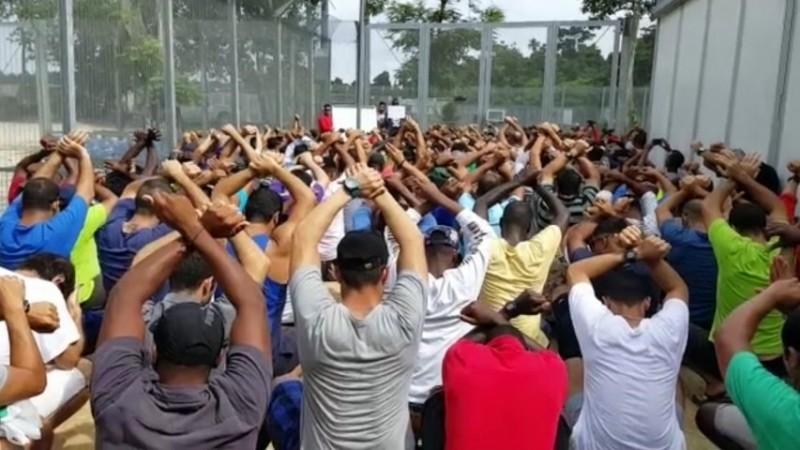
For the first time ever in its history, the members of the United Nations have agreed to adopt steps to safeguarding legal migrants while curbing illegalities like people-smuggling networks and human trafficking.
The UN has come up with a compact incorporating key provisions for smoother pathways to legal migration and safeguarding migrants. The Global Compact for Safe, Orderly and Regular Migration was finalised with fanfare on Friday, July 13. The compact is scheduled to be formally adopted at a conference in Marrakesh in December.
General Assembly President Miroslav Lajcak called the agreement on the compact reached after 18 months of negotiations a "historic" achievement, saying:
It does not encourage migration, nor does it aim to stop it. It is not legally binding. It does not dictate. It will not impose. And it fully respects the sovereignty of States.
"It can guide us from a reactive to a proactive mode. It can help us to draw out the benefits of migration, and mitigate the risks. It can provide a new platform for cooperation. And it can be a resource, in finding the right balance between the rights of people and the sovereignty of States."
This decision is of particular relevance to India which contributes the world's largest migrant population.
During negotiations, India had expressed reservations about some aspects of the compact, but the final draft took them into account and India will be a party to the compact, India's Permanent Representative Syed Akbaruddin told IANS.
Among the compact's key provisions relevant to India are enhancing "the availability and flexibility of pathways for regular migration" and facilitating "fair and ethical recruitment and safeguard conditions that ensure decent work".
UN Secretary-General Antonio Guterres said on Thursday, ahead of the formal finalising of the compact, that it will seek to "increase opportunities for legal migration".
Other provisions in the compact of interest to India include creating "conditions for migrants and diasporas to fully contribute to sustainable development", promoting "faster, safer and cheaper transfer of remittances", and creating "mechanisms for the portability of social security entitlements and earned benefits".

There are 17 million immigrants from India, according to the UN.
While the bulk of them are in the Gulf region, India pursues keeping gateways open for highly skilled professionals to migrate to the US, Britain and other developed nations. India is seeking to ensure that the migrants to developed countries have access to their contributions to social security or government retirement programs if they return home.
During the negotiations on Monday, India's Deputy Permanent Representative Tanmaya Lal had expressed reservations about some aspects of the earlier draft, which he said placed "disproportionate focus" on illegal immigrants.
Lal said that instead, more prominence should be given to "objectives that specifically focus on removing obstacles to safe, orderly and regular migration".
Another concern of India in an earlier draft was about applying to migrants the "principle of non-refoulement" (of not forcing refugees to return their countries). India pointed to the differences between refugees and migrants and maintained that migrants were not entitled to this protection as they were not fleeing persecution like refugees.
All these concerns were addressed in the final draft.
The compact will not be legally binding, but because of the backing of an overwhelming majority of nations, it will change attitudes and persuade countries to abide by them, Lajcak said.

The finalising of the draft "has immense potential to help the world harness the benefits of regular migration while safeguarding against the dangers of irregular movements that place people at risk", Guterres said.
The negotiations on the compact had to walk a tightrope between the sovereignty of nations and the need for bringing order to chaotic migrations and protecting migrants. The US boycotted the negotiations on the compact asserting that it would infringe on its sovereignty.
However, the compact "reaffirms the sovereign right of States to determine their national migration policy and their prerogative to govern migration within their jurisdiction", and also seeks to "distinguish between regular and irregular migration status."
"It can be a resource, in finding the right balance between the rights of people and the sovereignty of States," Lajcak said.
The compact takes a tough line against crime-ridden people-smuggling networks. It calls for action to "prevent, combat and eradicate trafficking in persons in the context of international migration".

















